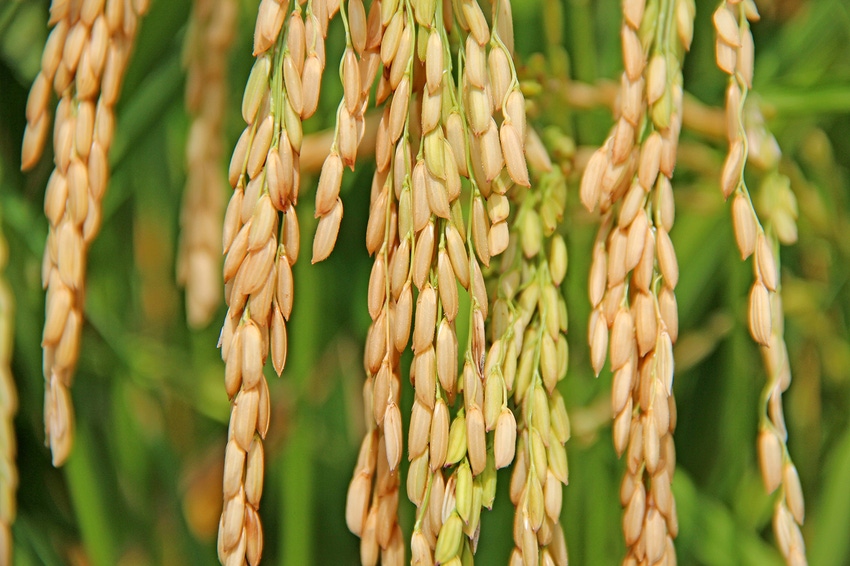September 24, 2015

Lately we have received calls about samples from fields with reports of “pecky” rice at 2 to 4 percent. Fields have been sprayed multiple times for rice stink bug control and thorough scouting records show stink bug populations were kept below threshold. So what gives? Not all pecky rice is the result of stink bug damage.
“Peck” has become the default term to describe damaged rice, but most associate the term directly with damage caused by rice stink bugs. Unfortunately, in some years that association is not warranted — this year seems like that.
Rice stink bug populations have not been that high this year compared to the past few years (when we didn’t have peck) for us to believe that all this damage is the result of rice stink bug damage.
A literature search shows that damage to rice kernels can be the result of many things, including heat, fungi, bacteria, and yes, rice stink bug. So the kneejerk reaction to associate all pecky rice with stink bugs isn’t accurate.
At this point in time, most of the pecky rice reports are in the northern half of the state, where regular rainfall events have been common throughout the entire season — including grain fill and drydown.
It seems much more likely that environmental conditions conducive to fungal infection, water damage, and wind damage (bruising of kernels) is far more likely than stink bugs getting the best of us.
To many, getting hit with large amounts of damaged rice and the price dockage associated with it is just another punch in the gut for an already brutal year. Many are looking for someone or something to blame this season, but in reality, environmental factors seem most likely to blame, not a scout or consultant.
We have treatment thresholds for a reason — spraying too much leads to reduced profitability, insecticide resistance, secondary insect problems, etc.
The more common approach in recent years has become to treat as soon as stink bug numbers get close to thresholds with a fear of letting them get past us.
It simply doesn’t make sense at this point for the reports of “peck” to be primarily rice stink bug. In the meantime we’ll keep looking and investigating what’s going on.
You May Also Like




